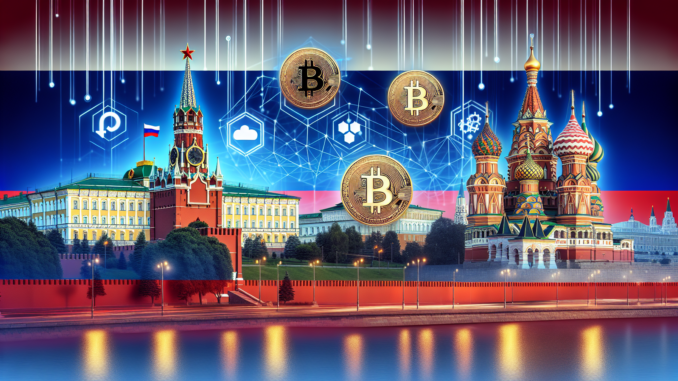
Russia takes a significant step towards regulating cryptocurrencies. President Vladimir Putin has signed a law that officially recognizes cryptocurrencies as property. This new law could not only affect the crypto markets in Russia but also have worldwide impacts. But what does this development mean concretely, and what are its implications for the crypto community?
Background of the Legal Amendment
In Russia, the legal status of cryptocurrencies has been largely unclear until now. This uncertainty has unsettled investors and companies alike. With the new law, Russia has now created a legal framework that recognizes cryptocurrencies as property. This means that cryptocurrencies like Bitcoin and Ethereum can now be considered comparable to physical and other digital assets. This recognition provides a legal structure and protection that can be enforced in court.
The Main Points of the New Law
The enacted law, which comes into effect on January 1, 2021, includes several key aspects. It recognizes cryptocurrencies as property, allowing crypto owners to assert their rights in cases of theft or fraud. Additionally, the taxation of cryptocurrencies becomes possible, meaning that profits from their sale or trade must be taxed. These changes are intended to contribute to transparency and security in dealing with cryptocurrencies.
Reactions from the Crypto Community
Reactions to this news are mixed. On one hand, the legal recognition is seen as a step towards a more stable market environment. Many hope for increased trust and investments in the cryptocurrency market in Russia. On the other hand, there are also concerns about potential tax burdens and government surveillance. Some voices in the crypto community fear that the new legal regulations could compromise the original spirit of cryptocurrencies, which is based on decentralization and anonymity.
Global Significance and Potential Impacts
Russia’s decision to officially recognize cryptocurrencies as property could also have international impacts. It signals to other countries that have not yet clearly defined crypto regulation that integration into existing legal structures is possible. This could encourage other governments to take similar steps, leading to a stronger acceptance of cryptocurrencies worldwide. Additionally, with every new regulatory framework, the interest of institutional investors in cryptocurrencies grows, as they see greater security in regulated markets.
Conclusion: A Path to the Future?
The new law in Russia represents an important milestone in integrating cryptocurrencies into the existing economy. Despite the associated challenges, it offers new opportunities that enable Russian citizens to become even more involved in the crypto market. It remains to be seen how this legal recognition will affect the crypto industry in Russia and beyond. What is certain, however, is that this step has reignited the debate about the integration of digital currencies into national and international legal systems. For the crypto community, the topic remains exciting, as it shows that cryptocurrencies are securing a firm place in the modern financial world.
Leave a Reply